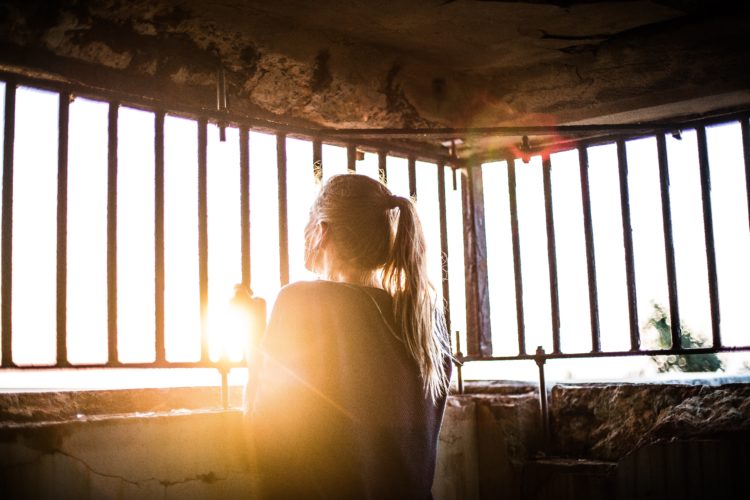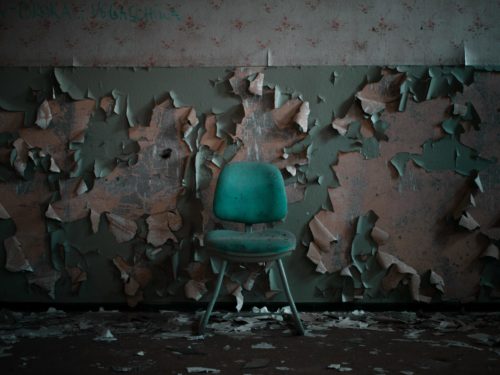If you’re a woman who struggles with pornography, one question you may be asking is “why?”
People around you may be asking it too.
It’s a question that sends you on an epic quest to find the root cause of your addiction. Because we tell ourselves there has to be a reason. There must be something wrong with us.
“Normal people don’t do this.”
(It honestly doesn’t help when we link porn addiction to serial killers and sociopaths.)
For years, we’ve attached female porn use to trauma. That connection has convinced some female porn addicts that they must be victims of trauma, even when they cannot recall a trauma. As a culture, we were convinced that there had to be a reason women struggled with this. It wasn’t normal.
And yes, some counselors have noted that trauma tends to make the perfect fertile soil for addiction. While there may be some correlation, it’s not a direct cause-and-effect. Trauma does not equal porn addiction and porn addiction does not equal trauma.
The idea that there must be some sinister underlying root cause of a struggle is a false narrative and a dangerous one.
When I was in my first year of college (at a Christian liberal arts school), I had a temper and knew how to lay people bare with my words. I lit into a fellow student and before I knew it had dean staff summoning me to their homes for emergency interventions. I made a grown man cry and then got sent to anger management counseling.
The counselor was, in fact, not a counselor. She was some former teacher or something who realized she liked to help people so she got an office with a lot of books and a box of tissues. She had no formal training as a counselor, and told me as much. But in my first session, she was determined to find the root cause of my anger.
I already knew it. The root cause of that current bout of anger was because I had a porn addiction, had been caught, and basically told there was something wrong with me. I stopped caring, and when you don’t care and think people don’t care… you get angry.
But she was absolutely convinced that my anger had some deep dark root in my past.
It had to come from somewhere. When I told her I had very few memories before the age of ten (which is true) she thought she had discovered the secret.
I was suffering from repressed memories, she said, and the root of my anger was filed away somewhere deep in the recesses of my mind, hiding. I would never be free from my anger unless I journeyed back through time to find the root and rip it up. That was the only way.
My first assignment was to create a timeline of my life, starting that day and going backwards, in order to find the root of anger. Every session was spent not dealing with my anger but with trying to find “the root.”
It was like going on a treasure hunt for cursed treasure, and that’s precisely the problem.
We never found the root of my anger, because my problem wasn’t my anger. My anger was a symptom of something else and she was missing that. I knew she was missing that and, since I wasn’t keen on getting help and was perfectly comfortable with my Irish temper, I led her on her little wild goose chase through my past.
When I talk about women struggling with pornography, one of the most common questions I am asked is “Why?”
Everyone wants to know where the root is buried so they can go in and rip it up. Even women who struggle will write in saying, “I can’t figure out what is causing this struggle.”
We’ve convinced women that there has to be something intrinsically damaged in them for them to want pornography and that’s not true.
That’s a shame script.
We don’t have this script for men. For men, pornography use is explained away because men are visually wired. We miss the fact plenty of men do suffer from trauma. We also miss that many women don’t. I personally know several women with pasts of porn addiction who had no history of sexual trauma.
Imagine how much time those women would waste by trying to find the “cause” of their addiction. If you’ve constantly heard that it’s rooted in trauma, you’re going to launch on an adventure to figure out that trauma. We want behavior modification instead of genuine healing, convinced that if we can kill the root we’ll solve all our problems.
The reality is that plenty of women get hooked on porn simply because they’re curious and sexual release feels good.
If you wander into a chocolate factory out of curiosity and discover some yummy chocolate, you’re going to be tempted to go back. That’s how it works. That’s our human nature. Unless someone convinces you that wandering into a chocolate factory is trespassing and that helping yourself to chocolate is stealing, you’re not going to have any reason not to go! This is what Paul gets at in the Bible when he talks about the law pointing out sin (Romans 7:7).
Are some women drawn to sexual struggles because of a past sexual trauma? Yes. I have emails from rape victims, victims of childhood sexual abuse, and more. I also have plenty of emails from girls who have nothing in their past- and it’s almost like there’s an added shame for them.
“I feel bad because I shouldn’t struggle with this. I don’t have any kind of bad things that happened.”
We’ve got this system twisted when women start feeling bad because they aren’t victims of trauma.
If you remember a trauma, then yes, you should address it, but if you have no memory of a reason “why”, don’t go on the hunt for trauma that may not exist. The healing God offers us is a forward-focused one. Grace says, “It doesn’t matter how you got here, let’s get you out.”
Your mom, pastor, and best friend’s cousin may all insist that there has to be some reason that you’ve ended up in this. Well-intended mentors may even launch into a scavenger hunt trying to find the reason why. If that happens, kindly remind them that you’re trying to focus on healing and that requires looking forward, not backward. As far as Grace is concerned, your past starts with the Gospel.
In many cases, the process of healing does a good job of uprooting things all by itself.
As you journey in healing, you may come across triggers or traumas. When you do, it’s ok to address them, but don’t waste your time hunting for roots. If you feel there might be something that needs to be addressed, find a real counselor and don’t go it alone.
But remember, there doesn’t have to be some deeper reason why you struggle with pornography. The “reason” could be that you enjoy it. That’s not a flaw in your wiring. Sex is designed to be enjoyable. We’re wired to be drawn to things we find enjoyable, and pornography is designed to exploit our enjoyment of sex. So it makes sense, neurologically speaking, that if you get physical enjoyment from watching porn (even if you feel guilty afterward or are drawn to it because of trauma) your physical brain is going to crave it as a form of pleasure. That’s not an excuse- that’s science.
Freedom doesn’t come from exclusively from figuring out how why you ended up there. Part of freedom is breaking that connection in your brain. Freedom is focused forward.
At the end of the day, your “why” doesn’t pull a lot of weight in breaking free from your struggle. Again, if you know of a trauma or you can pinpoint a reason why, then by all means address it. But don’t waste precious moments hunting for it when you could be growing and moving forward.
Instead of digging through your past trying to find a reason you’re stuck, look to your future to find a reason to break free.
Edit (4/13/19): A couple sentences were added to help clarify the intent of this post. It was never to minimize trauma or discount the need for healing trauma. I’ve written extensively about the need to heal from trauma and the role trauma can play in addiction. I believe trauma, even wounds caused by negative childhood experiences that aren’t per se “traumatic,” can lay a fertile ground for addiction, but it’s not the only ground where addiction can take root. This post was written to counteract a common narrative: “for women, only trauma causes addiction.”
A growing number of young women are finding their stories don’t fit this narrative. They are introduced to pornography not as a maladaptive coping mechanism but instead as a leisure activity and the addictive nature of pornography itself pulls them in. These women write in, confused and struggling, desperate to understand the “why.” Some insist they “had to be abused” even though they have no recollection of it. This post was written to give those women hope, not to address every potential reason why women would struggle. Each woman’s story is different and tackling each potential reason from sexual trauma to abandonment to emotional wounding to leisure would need a book, not a blog post.






